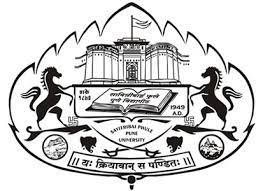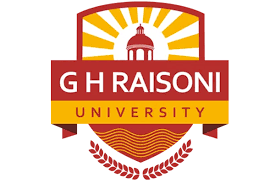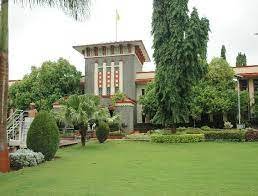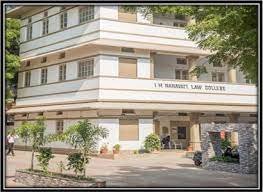Admission Process for PGD in Taxation
Pursuing a Post Graduate Diploma in Taxation is a significant step toward gaining expertise in tax laws, financial regulations, and fiscal management. This specialized program equips students with the knowledge and skills required to navigate the complex world of taxation. To embark on this academic journey, prospective students must successfully navigate the admission process, meet specific eligibility criteria, and prepare for entrance exams. This comprehensive guide will provide insights into each step of the admission process, including tips on securing admission to a reputed institution offering this course.
1. PGD in Taxation Admission Process
The admission process for Post Graduate Diploma in Taxation programs typically involves several stages, ensuring that candidates are well-prepared for this specialized field. Here's a breakdown of the typical steps involved:
a. Online Application: The first step is to identify institutions offering Post Graduate Diploma in Taxation programs. Most universities and business schools have an online application portal where prospective students can apply. Ensure you adhere to all application deadlines and provide accurate information during this stage.
b. Eligibility Check: After submitting your application, the institution will review your eligibility based on specific criteria outlined in the program's admission requirements. Meeting these criteria is crucial for advancing in the admission process.
c. Entrance Exam: Many institutions require candidates to take an entrance exam to assess their knowledge, aptitude, and suitability for the Post Graduate Diploma in Taxation program. While not all institutions may mandate an entrance exam, it is a common practice in the admission process.
d. Group Discussion (GD) and Personal Interview (PI): Shortlisted candidates are often invited for a group discussion and personal interview. These rounds are essential for evaluating a candidate's communication skills, critical thinking abilities, and passion for taxation and financial matters.
e. Merit List: Based on performance in the entrance exam, GD, and PI, institutions create a merit list. Candidates who rank higher in the merit list have a better chance of securing admission.
f. Counseling: Some institutions conduct counseling sessions to guide candidates in making informed choices about their course and specialization within taxation.
2. PGD in Taxation Eligibility Criteria
Meeting the eligibility criteria is fundamental to your chances of being admitted to a Post Graduate Diploma in Taxation program. While these criteria may vary slightly among institutions, here are the common requirements:
a. Educational Qualifications: Candidates typically must hold a bachelor's degree in any discipline from a recognized university. Some institutions may specify a minimum percentage or grade requirement in the qualifying degree.
b. Work Experience: While not always mandatory, some Post Graduate Diploma in Taxation programs prefer candidates with prior work experience, especially in fields related to finance, accounting, or taxation.
c. Entrance Exam Scores: If the institution requires an entrance exam, you must obtain a competitive score to be considered for admission. Different institutions may accept scores from various entrance exams, such as CAT, MAT, XAT, GMAT, or institute-specific exams.
d. Statement of Purpose (SOP) or Essay: Many institutions require candidates to submit an SOP or essay explaining their motivation for pursuing a Post Graduate Diploma in Taxation and their long-term goals in the field of taxation.
e. Letters of Recommendation: Some institutions may request letters of recommendation from professors, employers, or professionals who can attest to your capabilities and potential in the field of taxation.
3. PGD in Taxation Entrance Exams
Entrance exams play a significant role in the admission process for Post Graduate Diploma in Taxation programs. These exams evaluate candidates on various parameters, including their knowledge of taxation laws, quantitative aptitude, logical reasoning, and general awareness. While specific exam requirements may vary among institutions, here are some common entrance exams widely accepted:
a. Common Admission Test (CAT): CAT is one of the most prestigious management entrance exams in India. Many institutions consider CAT scores for admission to Post Graduate Diploma in Taxation programs.
b. Management Aptitude Test (MAT): MAT is another popular management entrance exam that assesses candidates' aptitude in various areas relevant to management, including taxation and financial management.
c. Xavier Aptitude Test (XAT): XAT is known for its rigorous assessment of candidates' analytical and decision-making skills. It is accepted by several institutions offering Post Graduate Diploma in Taxation programs.
d. Graduate Management Admission Test (GMAT): GMAT scores are widely recognized for admission to business and management programs, including those with a specialization in taxation.
e. Institute-Specific Exams: Some institutions conduct their entrance exams specifically for admission to Post Graduate Diploma in Taxation programs. It's essential to check the admission requirements of the institutions you're interested in to determine which exams they accept.
How to Prepare for PGD in Taxation Entrance Exams
Preparing for entrance exams is a crucial step in securing admission to a Post Graduate Diploma in Taxation program. Here are some tips to help you prepare effectively:
a. Understand the Exam Pattern: Familiarize yourself with the exam's format, including the number of sections, types of questions, and time constraints.
b. Create a Study Plan: Develop a structured study plan that allocates sufficient time to each section of the exam. Consistency in your study routine is key.
c. Study Material: Utilize reputable study materials, including textbooks, online resources, and coaching materials, to cover the syllabus comprehensively.
d. Practice Regularly: Solve practice questions and take mock tests to improve your speed and accuracy. This will also help you identify areas where you need improvement.
e. Time Management: Learn effective time management techniques to allocate the right amount of time to each section during the exam.
f. Seek Guidance: Consider joining a coaching program or seeking guidance from mentors who can provide valuable insights and tips for exam preparation.
Tips to Secure Admission to a Reputed College
Securing admission to a reputed college for a Post Graduate Diploma in Taxation program can significantly impact your educational experience and future career prospects. Here are some tips to enhance your chances of getting admitted to a top-tier institution:
a. Research Institutions: Conduct thorough research to identify institutions that offer Post Graduate Diploma in Taxation programs and have a strong reputation in the field of taxation education.
b. Early Application: Submit your application well in advance to ensure you meet all deadlines and have sufficient time to prepare for entrance exams and interviews.
c. Strong Academic Record: Maintain a strong academic record throughout your undergraduate studies to demonstrate your commitment to academic excellence.
d. Relevant Work Experience: If possible, gain work experience in finance, accounting, or taxation-related roles to strengthen your application.
e. Write a Compelling SOP: Craft a well-written Statement of Purpose (SOP) that highlights your passion for taxation and your career aspirations in this field.
f. Prepare for Interviews: Practice for group discussions and personal interviews to effectively communicate your thoughts and aspirations related to taxation and financial matters.
g. Letters of Recommendation: Request letters of recommendation from individuals who can provide strong endorsements of your qualifications and potential in the field of taxation.
h. Networking: Attend seminars, workshops, and conferences related to taxation to network with professionals and educators in the field.
i. Financial Planning: Explore scholarship opportunities and financial aid options to make your education more affordable.
 1 Years
1 Years
 Post Graduate
Post Graduate
 Management
Management
 Full Time
Full Time













 back
back

